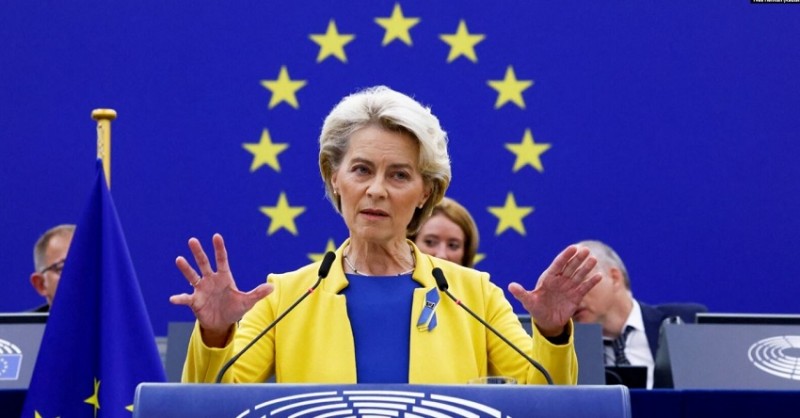
In a recent vote, Ursula von der Leyen has been re-elected as President of the European Commission, following a rigorous series of negotiations with various political groups. The German conservative politician won the support of 401 Members of Parliament (MPs) in a secret ballot, surpassing the 360 votes needed for re-election. While other presidents have previously served two terms, von der Leyen is the first to be re-elected by the European Parliament, which has been electing its leaders since 2014.
The coalition that backed von der Leyen's re-election consisted of the centre-right European People’s Party (EPP), the centre-left Socialists & Democrats (S&D), and the centrist liberals from Renew Europe. The Greens also supported her bid, despite facing losses in the June European Parliament elections.
A major topic of discussion within this coalition was the approach towards far-right parties, which have gained significant ground. These parties now hold nearly as many seats as the EPP, the largest parliamentary group. The exclusion of some far-right groups remains, but others, such as the Patriots of Europe and the Europe of Sovereign Nations, who are known for their eurosceptic and nationalist stances, voted against von der Leyen.
Von der Leyen, lacking clear backing from S&D, Renew, and the Greens, engaged with the European Conservatives and Reformists (ECR) to secure support. Although the ECR ultimately decided its votes based on national interests, Italian Prime Minister Giorgia Meloni’s party voted against her, though it succeeded in electing a vice president from their ranks.
In her re-election speech, von der Leyen emphasized a rightward shift in European governance, using rhetoric focused on "culture" and "values" to promote a vision of Europe as a cherished homeland. She framed the Green Deal—her significant bipartisan achievement—in terms of economic prosperity and competitiveness, aligning with conservative economic nationalism. This approach reflects a response to the growing skepticism of green policies and the rise of a “culture war” against them.
Von der Leyen also highlighted the need for Europe to safeguard itself from external threats, including migration. She proposed expanding Frontex, the European border agency, aiming to address migration flows but potentially increasing human suffering and rights abuses. Her plan includes a new commissioner for the Mediterranean to manage partnerships with non-European countries to curb migration, echoing last year’s agreement with Tunisia.
Moreover, von der Leyen’s focus on protecting democracy includes a proposal for a European Democracy Shield to counter foreign interference. While addressing these issues is crucial, her approach has been narrowly defined, primarily targeting external threats rather than fostering internal democratic resilience.
Recent Updates:
Ursula von der Leyen Re-elected as President of European Commission
Why Ursula von der Leyen’s Leadership Matters in Europe's Time of Crisis
Top Updates on Russia-Ukraine War Day 874: Explosions, Casualties, and Political Maneuvers